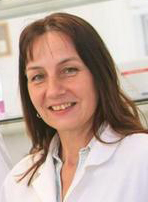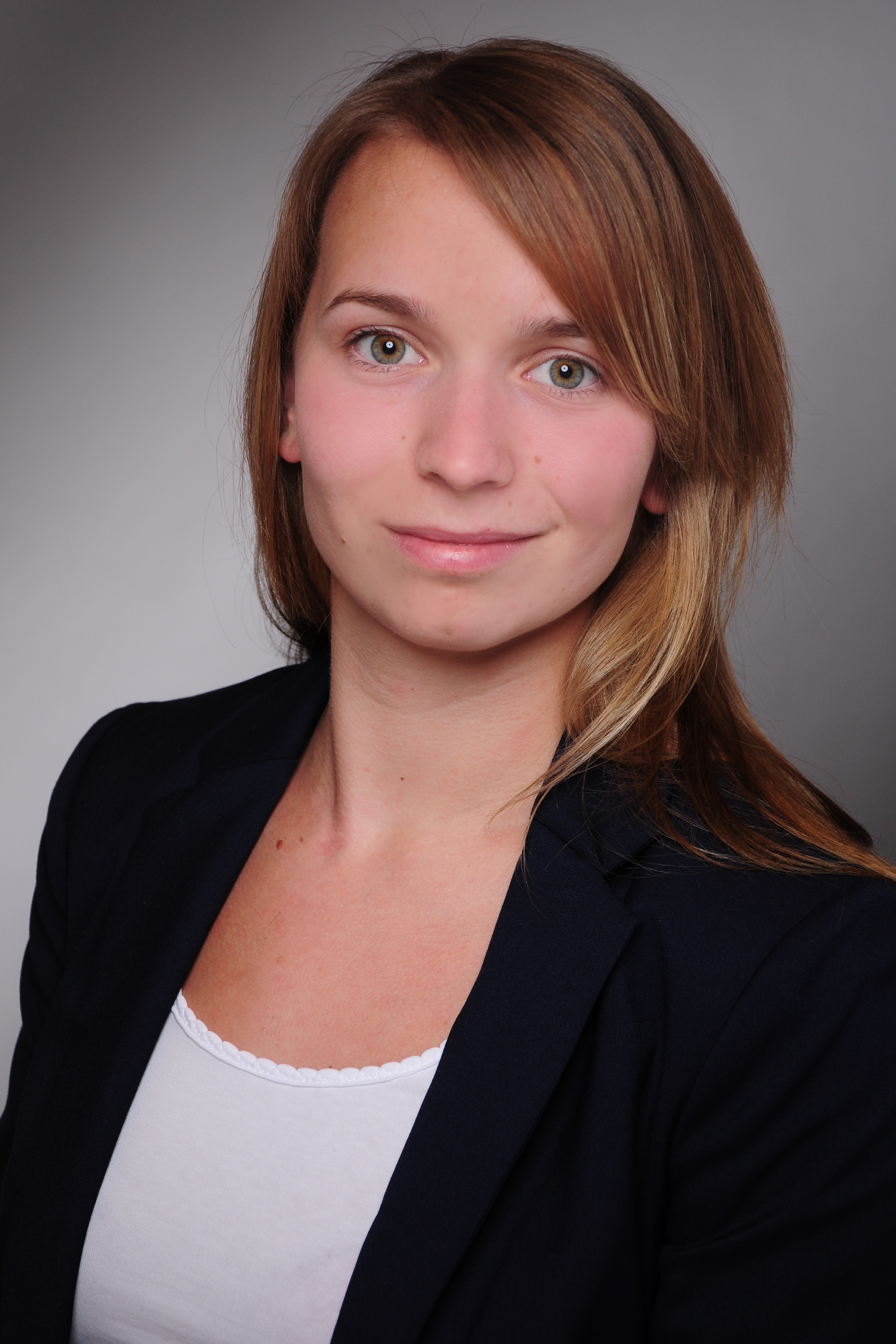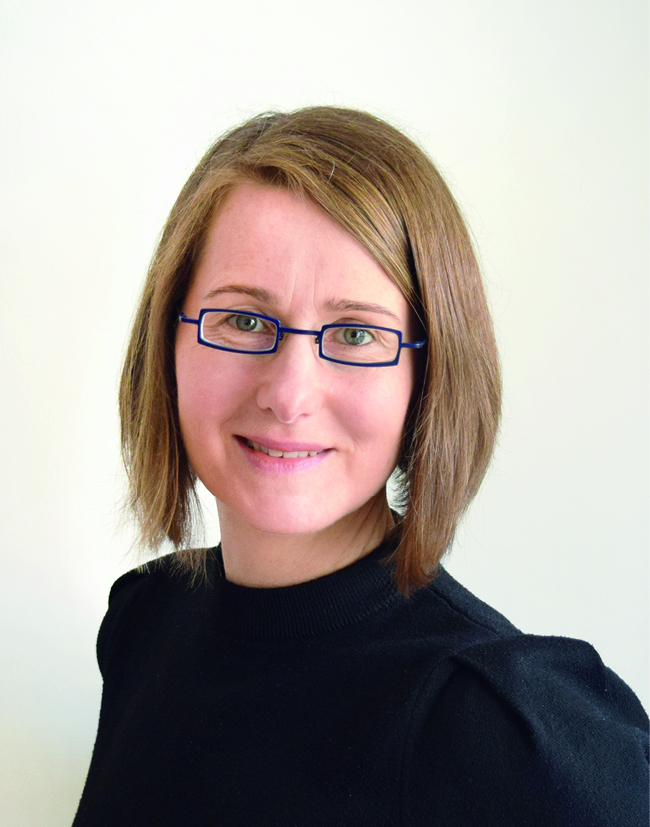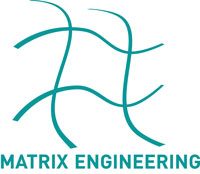
Integrated Research Training Group “Matrixengineering”
The Integrated Research Training Group “Matrix Engineering” addresses to doctoral students in natural sciences, biotechnology and materials science. In the imbedding transregional collaborative research centre TRR 67 there are various groups with different methods: chemists carrying out syntheses, materials scientists realising the design of artificial extracellular matrices, biochemists and biophysicists, structural biologists, analysts and teams with medical interests applying new biomaterials.
The Integrated Research Training Group comprises the structured doctoral studies with scientific seminars, summer school, retreats, skilling workshops and lab rotations to other subprojects of Transregio 67. In addition to working on their doctoral projects all students will be introduced to the workflow, from biomaterials design and development to testing to potential fields of application. The competence of committed scientists in our collaborative research center guarantees a constant scientific exchange.
This profile will qualify graduates for an independent career in various academic and industrial areas.
Contact

Spokesperson
Prof. Dr. Annette Beck-Sickinger
abeck-sickinger@uni-leipzig.de

Deputy Spokesperson
Prof. Dr. Carsten Werner
werner@ipfdd.de

Representative of the students
Franziska Ullm
franziska.ullm@uni-leipzig.de

Coordinator
Gunda Nitzsche
gunda.nitzsche@uni-leipzig.de
Curriculum
| 11.-12.02.2021 | IRTG Course in Leipzig/Dresden: Translational Aspects of Biomaterials |
| 01.03.2021 | Workshop: Gendern für Wissenschaftler*innen |
| 29.-30.03.2021 | Workshop: Communication training “Conflict talks” |
| 20.-21.05.2021 | IRTG Summer School |
| 28.05.2021 | Online Gender-Workshop: Gender Bias – Chancengleichheit an Hochschulen |
| 02.06.2021 | Online Gender-Workshop: Krieg der Sterne – Gendergerechte Sprache |
| 08.06.2021 | Online Gender-Workshop: Leadership – Führen von Teams |
| 15.06.2021 | Online Gender-Workshop: Konfliktmanagement – In schwierigen Gesprächen bestehen |
| cancelled | IRTG Course in Leipzig: BioAnalysis |
| 09.07.2021 | Lange Nacht der Wissenschaften, Dresden |
| 09.-10.07.2021 | 3rd International Symposium of the Transregio 67: Frontiers in Biomaterial Science |
| 16.07.2021 | Lange Nacht der Wissenschaften, Leipzig |
| 02.-03.09.2021 | Workshop: Presentation and Moderation |
| 29.-30.09.2021 | TRR Retreat |
| 19.11.-09.12.2021 | EQUAL OPPORTUNITIES IN RESEARCH COLLABORATIONS Gender Workshop Series 2021 |
| 02.12.2021 | Dies Academicus |
| 05.-06.02.2020 | IRTG Course in Leipzig: Synthesis Club |
| Canceled | Course on safety aspects in gene technology (GenTSV) |
| 04.-05.03.2020 | Course on laboratory animal science |
| Canceled | 3rd International Symposium of the Transregio 67: Frontiers in Biomaterial Science |
| Canceled | IRTG Course in Dresden: Biomaterial Design |
| 06.- 07.05.2020 | Online Workshop: Stay productive in your home office |
| 14.05.2020 | Online Talk and Discussion: Future Career Options in Academia and Beyond (SFB1052) |
| 08.-10.06.2020 | Online Workshop: Statistics and Statistical thinking |
| 24.06.2020 | Online Lecture: Microscopy data: challenges of research data management and first approaches |
| 6.-7. July & 13.-14. July 2020 | Online Workshop: Grant Proposal Writing |
| 7.-8. July 2020 | Online Workshop: Interview Training |
| 02.09. & 09.09. & 14.09.2020 | Online Workshop: How to supervise – leadership skills for PhDs |
| 07.-08.10.2020 | IRTG Course in Dresden: Cell Methods |
| Postponed | IRTG Course in Leipzig: BioAnalysis |
| 05.11.2020 | TRR Online Retreat |
| 23.11. & 14.12.-16.12.2020 | Adv. Online Workshop: From Analysis of Variance to Linear Fixed- and Mixed effects models |
| Canceled | IRTG Course in Dresden: Materials in Medicine |
| Postponed | IRTG Course in Leipzig/Dresden: Translational Aspects of Biomaterials |
| 30.01.-01.02.2019 | IRTG Course in Leipzig/Jena: Synthesis Club (basic) |
| Course on safety aspects in gene technology (GenTSV) Course on laboratory animal science | |
| 11.-13.03.2019 | IRTG Doctoral Meeting in Kohren-Sahlis |
| 20.-22.03.2019 | IRTG Course in Leipzig: BioAnalysis |
| 04.-05.04.2019 | TRR Retreat in Nimbschen |
| 01.-03.07.2019 | IRTG Course in Dresden: Biomaterial Design |
| 18.-19.09.2019 | IRTG Course in Dresden: Translational Aspects of Biomaterials [PDF] |
| 22.-23.10.2019 | IRTG Workshop: Karriereplanung (Dr. Iris Köhler) in coop. CRC 1052 |
| 05.-06.11.2019 | IRTG Course in Leipzig: Cell Methods [PDF] |
| 14.11.2019 | TRR Retreat in Nimbschen |
| 27.-28.11.2019 | IRTG Course in Leipzig: Materials in Medicine [PDF] |
| Course on laboratory animal science | ||
| 26.-28.02.2018 | IRTG Course in Leipzig/Jena: Synthesis Club (basic) | |
| Course on safety aspects in gene technology | ||
| 26.-27.04.2018 | TRR Retreat in Nimbschen | |
| 14.-16.05.2018 | IRTG Course in Leipzig: BioAnalysis (basic) | |
| 13.-15.06.2018 | IRTG Course in Dresden: Biomaterial Design (basic) | |
| 24.-26.09.2018 | IRTG Course in Dresden: Cell Methods (advanced) | |
| 26.-27.09.2018 | Course on safety aspects in gene technology (GenTSV) | |
| 10.-12.10.2018 | IRTG Course in Dresden: Translational Aspects of Biomaterials | |
| 16.-17.11.2018 | TRR Retreat in Nimbschen | |
| December | IRTG Course in Leipzig/Dresden: Materials in Medicine |
| February | Course on laboratory animal science | |
| April | Course on safety aspects in gene technology | |
| 01. – 02. June | TRR Retreat in Nimbschen | |
| 27. – 28. September | Course on safety aspects in gene technology | |
| 27. – 29. September | IRTG Course in Leipzig: Cell Methods (basic) | |
| 25. October | Course “Good Scientific Practics” by Prof. D. Huster | |
| 25. – 27. October | IRTG Doctoral Meeting / Autumn School in Schleinitz | |
| 02. – 03. November | TRR Retreat in Nimbschen | |
| 29. – 30. November | Course on laboratory animal science (basic) | |
| 29. Nov. – 01. Dez. | IRTG Course in Dresden: Materials in Medicine (basic) |
| Course on laboratory animal science | ||
| IRTG Course in Leipzig/Jena: Synthesis Club | ||
| Course on safety aspects in gene technology | ||
| 21. – 22.04. | TRR Retreat in Nimbschen | |
| IRTG Course in Leipzig: BioAnalysis | ||
| 18. – 22.05. | WBC 2015, Motreal | |
| 23. – 25.06. | 2nd TRR67 International Symposium “FRONTIERS IN BIOMATERIALS” | |
| 04. – 06.07. | IRTG Modul in Leipzig: Leadership | |
| 20. – 22.07. | IRTG Course in Leipzig/Dresden: Biomaterial Design | |
| 03. – 05.08. | IRTG Doctoral Meeting / Summer School at Burg Hohenstein | |
| 29.08. – 02.09. | IRTG Modul in Leipzig: GMP Workshop | |
| 28. – 29.09. | Course on safety aspects in gene technology | |
| 11. – 12.11. | TRR Retreat in Nimbschen | |
| 23. – 25.11. | IRTG Course in Dresden: Cell Methods | |
| IRTG Course in Dresden: Materials in Medicine |
| Course on laboratory animal science | ||
| 09. – 11. February | IRTG Course in Leipzig/Jena: Synthesis Club (advanced) | |
| Course on safety aspects in gene technology | ||
| 24. – 25. April | TRR Retreat in Nimbschen | |
| 20. – 22. May | IRTG Course in Leipzig: BioAnalysis (advanced) | |
| 03. – 05. June | IRTG Course in Leipzig/Dresden: Biomaterial Design (advanced) | |
| 08./10.-11. September | Course on medical/biological Statistics in Leipzig | |
| 16. – 18. September | IRTG Course in Leipzig: Cell Methods (basic) | |
| 06. – 07. October | Course on safety aspects in gene technology (Leipzig) | |
| 06. – 07. November | TRR Retreat in Nimbschen | |
| 25. – 27. November | TRR Winter School in Jena | |
| 15. – 16. December | IRTG Course in Leipzig: Materials in Medicine (advanced) |
| 05. February | Course on laboratory animal science | |
| 11. – 13. February | IRTG Course in Leipzig: Synthesis Club (basic) | |
| 03. – 04. April | Course on safety aspects in gene technology | |
| 11. – 12. April | TRR Retreat in Nimbschen | |
| 12. – 14. May | IRTG Course in Leipzig: BioAnalysis (basic) | |
| 04. – 06. June | IRTG Course in Dresden: Biomaterial Design (basic) | |
| 03. – 05. September | IRTG Course in Dresden: Cell Methods (advanced) | |
| 08. – 10. October | TRR Autumn School in Berlin | |
| 21. – 22. November | TRR Retreat in Nimbschen | |
| 15. – 17. December | IRTG Course in Dresden: Materials in Medicine (basic) |
| 28. January | Get together der IGK-Mitglieder |
| 19. – 20. April | TRR-Frühjahrstagung |
| 17. – 18. September | Modul Biomaterial Design (advance level), Dresden |
| 30. September | TRR-Kolloquium |
| 30. September – 02. October | Modul Cell Methods (basic level), Leipzig |
| 09. – 11. October | Summer School, Strehla |
| 15. – 16. November | TRR-Herbstretreat, Altenburg |
| 13.–15. February | Modul Synthesis Club (in Jena) |
| 26. March | TRR-Afternoon |
| 27.–28. April | TRR-Retreat |
| 9.–11. May | Modul BioAnalysis (in Leipzig) |
| 13.–15. June | Modul Biomaterial Design (in Dresden) |
| 19.–21. September | Modul Cell Methods (in Dresden) |
| 23.–26. September | Summer School |
| 15. October | TRR-Afternoon |
| 16.–17. November | TRR-Herbsttagung |
| 12.–14. December | Modul Materials in Medicine (in Dresden) |
| 14. – 16. February | Modul: Synthesis Club (in Leipzig) |
| 13. – 15. April | Modul: Biomaterial Design (in Dresden) |
| 6. – 7. Mai | TRR-Frühjahrstagung |
| 23.–25.Mai | Modul: BioAnalysis (in Dresden) |
| 1./2. September | Internationals Symposium des TRR 67(in Dresden) |
| 14.–16. September | Modul: Cell Methods (in Leipzig) |
| 25.–28. September | Summer School in Colditz |
| 25. November | TRR-Herbsttagung |
| 14.–16. Dezember | Modul: Materials in Medicine (in Dresden) |
| 19. Dezember | Lecture “Bio-ethik” Prof. Schwarke (in Dresden) |
| 15. – 17. February | Modul: Synthesis Club (in Leipzig) |
| 26. – 28. April | Modul: BioAnalysis (in Leipzig) |
| 7. – 8. May | TRR-Frühjahrstagung (in Nimbschen) |
| 25. May, 17:30 | TRR-Kolloquium: Prof. Dr. David A. Heart (in Dresden) |
| 8. – 11. June | Modul: Biomaterial Design (in Dresden) |
| 28. June | TRR-Kolloquium: Prof. Dr. Frank Emmrich (in Leipzig) |
| 29. August – 1. September | Summer School in Görlitz |
| 22. – 24. September | Modul: Cell Methods (in Dresden) |
| 16. – 18. December | Modul: Materials in Medicine (in Dresden) |
General information
Qualification program
All new doctoral students become members of the IGK. They take part in the qualification program and in several modules and courses they get to know the different methods and procedures used in Transregio 67.
Supervision
In order to ensure continuous supervision and thus rapid completion of the dissertation, each doctoral student has two Transregio 67 project leaders as tutors.
Promotion
The doctoral students receive their doctoral degree from the University of Leipzig or the Technical University of Dresden.
Childcare
Members of the TRR 67 (subproject leaders, research assistants and doctoral students) can use the services of the educators for the care of their children at any time.
Fellowship
The Transregio 67 awards scholarships (up to 5 months) for doctoral topics in its subprojects for students of medicine and natural sciences.
Good scientific practice
Information on Good Scientific Practice can be found here.
» Good Scientific Practice
The Graduate School BuildMoNa, the Young Biodiversity Research Training Group (yDiv) and the Research Training Group „Obesity Mechanisms“ (SFB 1052) offer scientific courses which are open to doctoral students of the IRTG Matrix Engineering. Workshops on transferable skills are offered by the Research Academy Leipzig. The Graduate Academy Dresden and the DIGS-BB offered courses and events at the Technical University of Dresden. In addition, in the new department “Study and training” offer soft skills courses at the TUD.
Qualification program
The objective of the structured research training is to qualify postgraduate students in different methodological and content-related special fields of biomedicine and biomaterials. The training programme contains the methodical workflow from design und and production of biomaterials to application of these materials in medicine. The wide expertise within Transregio 67 enables the students to learn the most modern technologies in biomaterials’ research and application.
This module is considered the top priority of the programme. The most important part of this module is research work.
“Biomaterial Science” includes regular Transregio workshops, lectures of visiting scientists and the annual summer school.
In the Transregio workshops postgraduate students and principal investigators discuss their scientific results on a regular basis. The annual summer school is organised by the postgraduate students. It offers them the opportunity to present and discuss their research work and to invite guest lecturers.
During the last year of their dissertations students are encouraged to present their scientific results at an international conference (in form of a talk or a poster presentation). In addition every doctoral candidate should be first author of a scientific publication.
Mat-Med Bench
The module “Mat-Med-Bench” consists of two lab rotations to other projects of Transregio 67 each rotation lasting for 2 weeks. Students will learn new techniques and skills and establish contact with other doctoral candidates and scientists.
Mat-Med School
The module “Mat-Med School” combines five Transregio 67-specific methodical courses (“Synthesis Club”, “Biomaterials Design”, “BioAnalysis”, “Cell Methods” and “Materials in Medicine”). These courses are held once a year, each of which is taught as a block seminar by either principal investigators or scientists of Transregio 67. In the course of this module the workflow from biochemical protein purification and characterisation to structural analysis of proteins is presented and illustrated by practical seminars.
- Synthesis Club
- BioAnalysis
- Biomaterials Design
- Cell Methods
- Materials in Medicine
- Translational Aspects of Biomaterials
Skilling
Basic scientific skills are trained in this module. Three topics are covered:
“Poster, Paper and Promotion”
This includes seminars on scientific presenting and writing (e.g. poster design and how to write a scientific paper).
“Communication skills”
This section contains lessons about holding a seminar or delivering scientific speeches as well as seminars about time management and being a laboratory manager.
“Me in Science”
This includes courses about science policy, career profiles, an introduction to national and international grant systems, good laboratory practice and career opportunities for women.
Supervision
Each student is assigned to two tutors who are principle investigators of the Transregional Collaborative Research Centre (TRR 67). The tutors are responsible for structuring the project and the curriculum, an annual evaluation of the progress made by the students in completing their project, and of the qualification for and the preparation of the defence of the PhD or MD thesis.
Download PDF: TRR67_ProgressReport_PhD (PDF), Supervision Agreement (Leipzig University, engl., DOCX),
Supervision Agreement (TUD, engl., PDF)
Promotion
The doctoral students will obtain their PhD/MD from Leipzig University or Technische Universität Dresden. The following faculties are involved in the Integrated Research Training Group:
- Faculty for Life Sciences, Leipzig University
- Faculty of Medicine, Leipzig University
- Faculty of Mechanical Engineering, Technische Universität Dresden
- Faculty of Science, Technische Universität Dresden
- Faculty of Medicine Carl Gustav Carus, Technische Universität Dresden
Childcare
Transregio 67 has an innovative childcare concept with model character for the universities of Leipzig and Dresden as well as for the Deutsche Forschungsgemeinschaft (German Research Foundation), which generously finances this position. At each of the two locations there is an educator employed by TRR 67. She looks after the children of the TRR 67 employees during the closing hours of the day-care centres, at external TRR seminars and after individual consultation and in emergencies. Members of the TRR 67 (sub-project leaders, scientific staff and doctoral students) can use the services of the educators at any time with the care of their children.
Please contact Mrs. Birgit Kanzler (0341 97-18605) to make an appointment.
An educator will be happy to take care of your children during events of the TRR 67 and the Integrated Research Training Group.
The family and child-friendly services are detailed:
- Accompaniment by a nanny to external seminars and workshops
- regular childcare during unusual working hours as well as during seminars and evening lectures
- Emergency programme: care of children in their parents’ home in the event of illness, unexpected absence, e.g. late arrival of trains, or unforeseen laboratory problems.
Fellowship
The Collaborative Research Centre Transregio 67 offers fellowships (up to 5 months) for doctoral projects in its subprojects for
The Transregio 67 offers short-time scholarships for the assistance of PhD students in its subprojects.
Amount and duration of the scholarship
The scholarships can be awarded up to five months. The amount of the fellowship is up to 1.000 Euro per month.
Who can apply?
PhD students with a master’s degree or diploma (university) in natural sciences, materials science or biotechnology.
How can I apply?
Please visit the homepage of our collaborative research centre and find out about the subprojects in the Transregio 67. Please contact the principal investigator of the subproject you are interested and send your application forms to him/her.
Application deadline
Applications are possible at any time. There is no application deadline.
The scholarship provides financial support for carrying out the experimental part of the doctoral project.
Amount and duration of the scholarship
Scholarships can be awarded up to five months. The amount of the fellowship is 853 Euro per months until 30 September 2020. From 1 October 2020 the amount of the fellowship is 861 Euro per months.
Who can apply?
Medical students who have passed the first level of the Medical Exam.
How do I apply?
Please visit the homepage of our collaborative research centre and find out about the subprojects in the Transregio 67. Please contact the principal investigator of the subproject you are interested and send your application forms to him/her.
Application deadline
Applications are possible at any time. There is no application deadline.
For more information on the scholarships, please click on the point that applies to you.
Contact
Gunda Nitzsche / Birgit Kanzler
Good Scientific Practice
The TRR67 conforms to the DFG Code of Conduct: Guidelines for Safeguarding Good Research (PDF, 2019), and is committed to academic integrity, fairness and exemplary scientific conduct. The members also act according to their Regulations of Good Scientific Practice of the respective faculties according to their official duties, e.g. Leipzig University: Statutes on Safeguarding Good Academic Practice (PDF, 2015, only in german).
All members are encouraged to continuously update their knowledge about new features and additions in good scientific practice. Specific courses have been established in IRTG’s qualification program and are mandatory for all postdocs and doctoral students.
[only in german] Informieren Sie sich hier über Ihre Verantwortung als Wissenschaftler*in und holen Sie sich Hilfestellungen, wie Sie dieser Verantwortung gerecht werden können.
Was ist gute wissenschaftliche Praxis?
Der Ausdruck “gute wissenschaftliche Praxis” hat sich seit Ende der 1990er zu einem Begriffsbündel entwickelt, welches die professionelle Qualität im Wissenschaftssystem sichern soll. Es umfasst Regeln und Empfehlungen, wie im Arbeitsalltag wissenschaftsethischen Maximen gerecht werden kann. Die Kommission der deutschen Forschungsgemeinschaft DFG verabschiedete zu diesem Zweck erstmals 1998 Empfehlungen, die von den DFG geförderten Hochschulen und Forschungseinrichtungen etabliert wurden. Erst im Jahr 2013 wurden diese Empfehlungen aktualisiert und um weitere ergänzt. Die nun 17 Empfehlungen umfassende Denkschrift ist handlungsleitend für wissenschaftliche Institutionen in Deutschland.
Grundprinzip guter wissenschaftlicher Praxis?
Unter dem Primat der Ehrlichkeit sich selbst und anderen gegenüber, lässt sich das Prinzip wissenschaftlicher Arbeit folgendermaßen zusammenfassen:
- nachvollziehbare, nachweisbare und einsehbare Dokumentation aller Resultate
- konsequente Selbst-und Fremdkritik der Ergebnisse
- Ehrlichkeit im Hinblick auf die Beiträge von Partnern, Konkurrenten und Vorgängern
Dieses Grundprinzip ist zugleich die erste Empfehlung der DFG-Denkschrift und soll zu jedem Zeitpunkt von wissenschaftlichen Institutionen ermöglicht und von den Individuuen umgesetzt werden. Zusätzlich gilt seit August 2019 der DFG-Codex, Guidelines for Safeguarding Good Research Practice.
Promotionsrelevante Empfehlungen Kriterien einer wissenschaftlichen Qualifikationsarbeit
Sie als angehende Wissenschaftlerin oder angehender Wissenschaftler sind im Verlauf Ihrer bisherigen Studien bereits vielfach mit den Anforderungen an wissenschaftliche Arbeiten konfrontiert worden. Für Qualifikationsarbeiten wie die Dissertationsschrift gilt es insbesondere, sich dem höchstmöglichen Anspruch an Wissenschaftlichkeit zu stellen. Die Einhaltung des wissenschaftlichen Grundprinzips wird Sie sicher zur Anerkennung der Promotion führen. Konkrete Hinweise auf die Eigenschaften einer wissenschaftlichen Qualifikationsarbeit liefern Ihnen darüber hinaus die unten genannten Positionspapiere.
Weiterführende Links:
- Positionspapier des Allgemeinen Fakultätentages und des deutschen Hochschulverbands
- Positionspapier des Wissenschaftsrates zur Sicherung der Qualität bei Promotionen
- Ordung der Sächsischen Akademie der Wissenschaften zu Leipzig zur Sicheung guter wissenschaftlicher Praxis
- Präsentation “Sicherung guter wissenschaftlicher Praxis” (A. Reichenbach, Leipzig University, Medical Faculty)
- Informationsbroschüre zum wissenschaftlichen Arbeiten (von kisswin.de)
Kriterien wissenschaftlichen Fehlverhaltens
Die Universität Leipzig und die Technische Universität Dresden haben auf Grundlage der DFG-Empfehlungen Leitlinien für den Umgang mit wissenschaftlichem Fehlverhalten ausgearbeitet und Merkmale einer grob fahrlässigen oder eigentumsverletzenden Arbeit definiert.
- Satzung der Universität Leipzig zur Sicherung guter wissenschaftlicher Praxis (Universität Leipzig)
- Richtlinien zur Sicherung guter wissenschaftlicher Praxis, zur Vermeidung wissenschaftlichen Fehlverhaltens und für den Umgang mit Verstößen (TU Dresden)
Gute Doktorandenbetreuung als Instrument guter wissenschaftlicher Praxis
Die DFG betrachtet die bestmögliche Förderung des wissenschaftlichen Nachwuchses als Präventionsarbeit. Erfahrene Wissenschaftler*innen sind demnach in der Verantwortung Nachwuchswissenschaftler*innen zu unterstützen. Die Empfehlung 4 der DFG widmet sich ausschließlich dem Thema Nachwuchsförderung und fordert, dass jedem Doktorand und jeder Doktorandin angemessene wissenschaftliche Förderung zugute kommen soll, indem seine/ihre Betreuung gewährleistet wird. Für jeden soll es einen ersten Ansprechpartner oder Ansprechpartnerin geben. Neben dieser Bezugsperson sollen weitere Ansprechpartner zur Unterstützung in Konfliktsituationen etc. bekannt sein. Die DFG empfiehlt zudem verstärkte Kommunikation in wissenschaftlichen Arbeitsgruppen, Unterstützung in der Karriereplanung und die Erstellung eines konkreten Betreuungskonzeptes für Promovierende.
Ombudsmann für die Wissenschaft
Auf Grundlage der Empfehlung der „Kommission Selbstkontrolle in der Wissenschaft“ sind an der Universität Leipzig und TU Dresden Vertrauenspersonen (Ombudspersonen) eingesetzt. Diese sind Ansprechpartner, Ratgeber und Vermittler bei allen Verdachtsfällen von wissenschaftlichem Fehlverhalten. Liegt aus der Sicht der Vertrauensperson ein begründeter Verdacht auf wissenschaftliches Fehlverhalten vor, wird dieser durch die Untersuchungskommission oder in Verdachtsfällen, in denen das Fehlverhalten Graduierungen (Promotionen, Habilitationen) betrifft, durch das in der jeweiligen Prüfungs- und Graduierungsordnung vorgesehene reguläre Prüfungsgremium begutachtet.
Vertrauensperson für Angelegenheiten des wissenschaftlichen Nachwuchses
Universität Leipzig: Zur Schlichtung und Mediation von Konflikten und Konfliktsituationen des wissenschaftlichen Nachwuchses (vornehmlich Promovierende) ist in der Grundordnung der Universität Leipzig eine Schlichtungsstelle vorgesehen. Die als Schlichter vom Rektorat der Universität Leipzig bestellten Personen sind zur Verschwiegenheit gegenüber Dritten verpflichtet und können vermittelnd und beratend tätig werden, sofern Konfliktsituationen nicht auf Ebene der Fakultäten, der zentralen Einrichtungen oder anderen Funktionseinheiten beigelegt werden können. Hier finden sie eine Übersicht über die Vertrauensdozenten der Universität Leipzig.
Technische Universität Dresden: Hier finden sie eine Übersicht über die Vertrauenspersonen für Angelegenheiten des wissenschaftlichen Nachwuchses. Diese Vertrauenspersonen sollen dem wissenschaftlichen Nachwuchs (insbesondere Promovierenden) als leicht erreichbare Ansprechpartner dienen und insbesondere auch in problematischen Situationen vermitteln.
